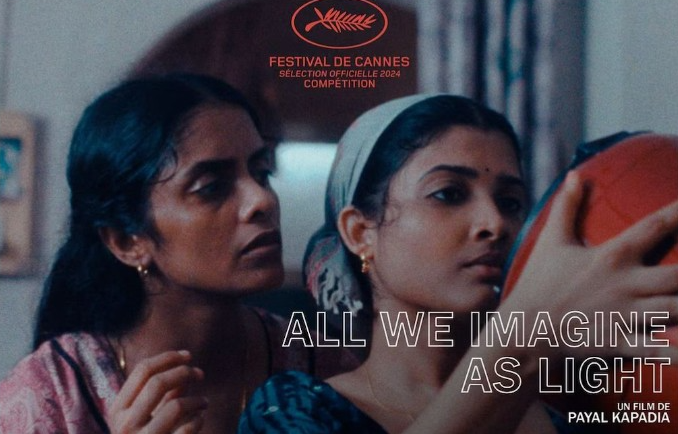'All We Imagine As Light' becomes 1st Indian film to compete at Cannes Film Festival in 30 years
13 Apr 2024 17:30:29
After a long wait of three decades, Payal Kapadia's All We Imagine As Light became the first Indian film in over 30 years to feature in the prestigious Cannes Film Festival, where it will compete for the top prize Palme d'Or.

This was announced at a press conference on Thursday in Paris by Iris Knobloch, president of the festival, and Thierry Fremaux, general-delegate. Interestingly, Kapadia is one of the four female directors in competition. The number was seven last year.
Kapadia (30) will be aiming for the coveted Palme d'Or along with some of the most celebrated names in world cinema: Francis Ford Coppola (Megalopolis), Sean Baker (Anora), Yórgos Lánthimos (Kinds Of Kindness), David Cronenberg (The Shrouds), Andrea Arnold (Bird), Paul Schrader (Oh Canada) Jacques Audiard (Emilia Perez) and Paulo Sorrentino (Parthenope) to mention some.
All We Imagine As Light
An Indo-French production, All We Imagine As Light, talks about Prabha, a nurse, who receives an unexpected gift from her long estranged husband that makes her uneasy. In the meantime, her younger friend and roommate, Anu, is desperately trying to find a quiet spot to be with her lover. Eventuality, the two women take a road trip to a beach town where they find space for their dreams and desires to flow.
The festival had picked Shaji N. Karun's Swaham in 1994 to vie for the top Palme d'Or. About 11 years before that in 1983, Mrinal Sen's Bengali language Kharij was part of Cannes Competition and clinched the jury prize.
In the 77 years that Cannes has been showcasing cinema from round the globe, only a handful of Indian movies have been able to get into Competition. Chetan Anand’s Neecha Nagar (1946), V Shantaram’s Amar Bhoopali (1952), Raj Kapoor's Awaara (1953), Satyajit Ray’s Parash Pathar (1958), MS Sathyu’s Garm Hava (1974) and Mrinal Sen’s Kharij (1983) are the titles that have not been eroded by time. Neecha Nagar is the only title from India to have clinched the Palme d'Or.